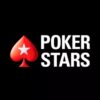I’ve learned that one of the most crucial aspects of being a successful poker player is game selection.
Choosing the right table can greatly impact your profitability.
In this article, I’ll be sharing 14 tips that will help you make more informed decisions when it comes to selecting poker games.
From recognizing profitable tables to profiling players, I’ll provide you with the tools and strategies you need to maximize your chances of winning.
Let’s dive in and start sharpening our game-selection skills!

1. Understanding the Importance of Game Selection
In this article, I’ll explain the significance of game selection in maximizing profitability in poker.
Game selection strategies and finding profitable poker rooms are crucial aspects of a successful poker player’s strategy. When it comes to game selection, it’s important to consider factors such as the skill level of the players, the table dynamics, and the average pot size. By choosing games where the skill level is lower and the players are more recreational, you increase your chances of being a profitable player.
Additionally, finding poker rooms that offer good rakeback deals or promotions can greatly enhance your profitability. It’s essential to invest time and effort in researching and selecting the right games and poker rooms to maximize your potential earnings in the long run.
2. Recognizing Profitable Poker Tables
How can I identify the most profitable poker tables to play at? When it comes to bankroll management and maximizing your profits, table selection plays a crucial role.
Here are a few key factors to consider when recognizing profitable poker tables:
- Player Skill Level: Look for tables with players who are less skilled than you. This will increase your chances of winning and making a profit. Avoid tables where the players are more skilled than you, as this can lead to losses and negatively impact your bankroll.
- Table Dynamics: Observe the table dynamics before joining. Look for tables where players are passive and making mistakes, as this presents opportunities for profit. Avoid tables where players are aggressive and highly skilled, as they’ll make it difficult for you to win consistently.
3. Profiling Players for Successful Game Selection
When recognizing profitable poker tables, it’s important to profile players for successful game selection. One effective method is player tracking, which involves collecting and analyzing player statistics. By tracking players’ tendencies, such as their aggression level, hand selection, and win rate, you can gain valuable insights into their playing style and skill level. This information allows you to identify weaker players or those who are prone to making mistakes, increasing your chances of profitability.
Additionally, player statistics can help you understand the overall dynamics of the table and make informed decisions about when to join or leave a game. By utilizing player tracking and statistics, you can optimize your game selection strategy and maximize your potential profits.
Now, let’s move on to the next crucial aspect of successful game selection: bankroll management.
4. Bankroll Management for Game Selection
Continuing the discussion about profiling players for successful game selection, it’s crucial for me to emphasize the importance of proper bankroll management. Implementing effective bankroll management strategies is essential for long-term success in poker.
Here are a few key strategies to consider:
- Set a bankroll limit: Determine the maximum amount of money you’re willing to risk in poker games. This will help you avoid overspending and protect your bankroll.
- Use proper buy-in amounts: Make sure the buy-in for the game you choose is within your bankroll limits. Avoid playing in games with buy-ins that are too high, as it can lead to unnecessary risk.
In addition to these strategies, utilizing bankroll tracking tools can greatly assist in managing your funds. These tools provide valuable insights into your wins, losses, and overall performance, allowing you to make informed decisions about game selection and bankroll allocation.
With a solid understanding of bankroll management, it’s time to move on to the next section: choosing the right game type.
5. Choosing the Right Game Type
To maximize profitability in poker, it’s crucial to carefully select the game type that suits my skills and preferences. When it comes to game selection strategies, the goal is to find profitable cash games where I’ve a competitive edge.
One important factor to consider is the skill level of the players. If I’m an experienced player, I may want to look for games with weaker opponents. This will increase my chances of winning and making a profit.
Additionally, the stakes of the game should align with my bankroll. Playing at stakes that are too high can lead to unnecessary losses, while playing at stakes that are too low may not provide enough financial incentive.
6. Selecting Profitable Tournaments
I always aim to seek out tournaments that offer the best potential for profit. When it comes to tournament selection strategies, maximizing ROI in tournaments is crucial. Here are two important factors to consider:
- Field Size: Opt for tournaments with smaller fields. The fewer players there are, the better your chances of reaching the final table and securing a payout. Avoid tournaments with excessively large fields. The competition becomes tougher, making it harder to make a profit.
- Prize Pool Distribution: Look for tournaments that offer top-heavy prize pool distributions. This means a larger portion of the prize pool goes to the top finishers, increasing your potential earnings. Avoid tournaments with flat prize pool distributions, as it decreases your chances of making a significant profit.
7. Transitioning Between Live and Online Poker
How do I smoothly switch from playing live poker to online poker? Transitioning from live poker to online poker can be a rewarding experience if done correctly. While the basic principles of the game remain the same, there are some key differences to consider. One of the advantages of playing online poker is the ability to multi-table, allowing you to play multiple games simultaneously. This can significantly increase your volume of hands played and potential winnings. Additionally, online poker offers a wide range of game options and stakes, allowing you to find the perfect game that suits your skill level and bankroll. To help you understand the differences between live and online poker, here is a comparison table:
| Aspect | Live Poker | Online Poker |
|---|---|---|
| Game Options | Limited | Wide Range |
| Stakes Available | Limited | Various |
| Speed of Play | Slower | Faster |
| Multi-Tabling | Not Possible | Possible |
8. Evaluating Table Dynamics
Assessing the table dynamics is crucial for maximizing profitability in poker game selection. When evaluating player tendencies, it’s important to observe their playing style and adjust our strategy accordingly.
Here are two key factors to consider:
- Player aggression: By assessing how aggressive or passive players are, we can determine whether they’re likely to bet big or fold easily. This information helps us adjust our approach and exploit their tendencies.
- Player skill level: Identifying the skill level of opponents allows us to gauge the level of competition at the table. Against weaker players, we can employ a more aggressive strategy, while against stronger players, we may need to play more cautiously.
By evaluating these dynamics and adapting our strategy accordingly, we can enhance our chances of success in poker games.
Now, let’s delve into the subsequent section about analyzing player behaviors.
9. Analyzing Player Behaviors
To understand player behavior in poker games, it’s essential to observe their actions and reactions during gameplay. Analyzing player tendencies can provide valuable insights that can be used to develop effective game-selection strategies.
By paying close attention to how players bet, raise, or fold in different situations, we can identify patterns and make informed decisions about which games to join. For example, if we notice that a particular player consistently plays aggressively and bluffs frequently, we may choose to avoid playing against them in order to minimize our risk.
On the other hand, if we observe that a player is more cautious and tends to fold easily, we may see an opportunity to exploit their tendencies and increase our chances of winning. Understanding player behaviors is a crucial aspect of successful game selection and can greatly impact our profitability in the long run.
10. Assessing Skill Levels
When it comes to assessing skill levels in poker games, there are several important points to consider.
First, player observation techniques play a crucial role in determining the skill level of opponents. By closely watching their betting patterns, decision-making processes, and overall gameplay, one can gain valuable insights into their abilities.
Additionally, identifying weaker opponents can be advantageous, as it allows for exploiting skill disparities and maximizing profits.
Player Observation Techniques
As I observe players at the poker table, I can determine their skill levels by analyzing their betting patterns and decision-making strategies. This allows me to gain valuable insights into their playing style and make informed decisions during the game. To accurately assess skill levels, I rely on the following player observation techniques:
- Analyzing Betting Patterns: I pay attention to the size and frequency of their bets. Experienced players tend to make strategic bets, while less skilled players may bet erratically or consistently bet the same amount. I observe how players react to different situations, such as raises or bluffs. Skilled players often make calculated decisions, while novices may exhibit more impulsive behavior.
- Reading Opponents’ Body Language: I look for subtle cues in their body language, such as facial expressions, eye movements, and fidgeting. These can indicate confidence or nervousness, giving me insight into their hand strength. I also observe their posture and demeanor, as confident players often maintain a relaxed and composed stance, while inexperienced players may appear tense or uncomfortable.
Identifying Weaker Opponents
By implementing these player observation techniques, I’m able to accurately assess the skill levels of my opponents and identify weaker players for more profitable poker game selection.
One effective method is recognizing patterns in their betting behavior. Weaker players often exhibit consistent patterns, such as always raising with strong hands or folding when faced with aggression. By carefully observing these patterns, I can gain valuable insights into their playing style and skill levels.
Another way to identify weaker opponents is by exploiting their weaknesses. This involves targeting their tendencies to make poor decisions or play too passively. For example, if I notice a player regularly calling bets without a strong hand, I can exploit this by bluffing more often against them.
Exploiting Skill Disparities
One effective way to assess skill levels and exploit disparities in a poker game is by closely observing players’ decision-making processes. By paying attention to how players approach different situations, you can gain valuable insights into their skill level and exploit any weaknesses you identify.
Two key areas to focus on when assessing skill disparities are exploiting positional advantage and exploiting betting patterns.
- Exploiting positional advantage: Take note of players’ actions in early, middle, and late positions. Look for players who consistently make poor decisions when out of position.
- Exploiting betting patterns: Observe how players bet in different situations. Identify patterns of aggression or passivity and adjust your strategy accordingly.
11. Considering Player Bankrolls
How can I effectively consider player bankrolls when selecting a profitable poker game?
Bankroll management is a crucial aspect of poker strategy. When considering player bankrolls, it’s important to assess the size and strength of your opponents’ bankrolls. Playing against players with larger bankrolls increases the potential for big pots and higher stakes.
However, it’s also important to consider the skill level of the players with larger bankrolls. In some cases, players may have a large bankroll but lack the necessary skills to compete at a high level. On the other hand, players with smaller bankrolls may be more cautious and less likely to take risks.
12. Identifying Soft Vs. Tough Games
To identify soft vs. tough games, I analyze the skill levels and playing styles of my opponents. This allows me to assess the overall difficulty level of the game and make informed decisions regarding my game selection strategies and table selection techniques.
Here are two key factors I consider:
- Skill Levels: Weak Opponents: Players who make frequent mistakes, lack strategy, or display poor decision-making skills.
- Strong Opponents: Skilled players who’ve a solid understanding of the game, employ advanced strategies, and make fewer errors.
- Loose Players: Participants who play a wide range of hands, often stay in the pot for too long, and are more likely to make bluffs or questionable calls.
- Tight Players: Individuals who are more selective with their starting hands, fold more frequently, and tend to play conservatively.
13. Researching Online Poker Sites
When researching online poker sites, there are three key points to consider: trusted poker site rankings, player reviews and feedback, and comparing bonuses and promotions.
Trusted poker site rankings can help identify reputable sites that have a strong track record of fair play and reliable payouts.
Player reviews and feedback provide valuable insights into the overall player experience, including the site’s software, customer support, and game variety.
Lastly, comparing bonuses and promotions can help maximize your profitability by taking advantage of the best offers available.
Trusted Poker Site Rankings
After extensive research and personal experience, I’ve found that ranking trusted poker sites can be effectively done by examining their reputation and player reviews. When it comes to trusted poker site selection, finding reputable online platforms is crucial for a profitable poker game. Here are two key factors to consider:
- Reputation: Look for sites that have been operating for a significant period of time and have a solid track record. Check if the site is licensed and regulated by a reputable authority.
- Player Reviews: Read reviews from other players to get insights into their experiences. Look for sites with positive feedback regarding customer service, game fairness, and prompt payouts.
By evaluating a poker site’s reputation and considering player reviews, you can make an informed decision and choose a trusted platform for your poker games.
Now, let’s delve into the importance of player reviews and feedback in the next section.
Player Reviews and Feedback
I researched trusted poker sites based on reputation and player reviews, and now it’s time to delve into the importance of player reviews and feedback when researching online poker sites. Player satisfaction and game variety are crucial factors to consider when selecting an online poker site. Player reviews provide valuable insights into the overall experience offered by a site. They can highlight the site’s strengths and weaknesses, as well as any issues with customer support or payment processing. By reading player reviews, I can determine if a site consistently delivers a satisfying gaming experience and if it offers a wide range of poker games to choose from. To better understand the significance of player reviews and feedback, let’s take a look at the table below:
| Player Reviews and Feedback |
|---|
| Helps gauge player satisfaction |
| Provides insights into game variety |
| Highlights strengths and weaknesses |
| Determines site’s reliability |
Comparing Bonuses and Promotions
To compare bonuses and promotions when researching online poker sites, I look for attractive offers that enhance my potential profitability. When analyzing bonus terms, I consider factors such as the size of the bonus, the wagering requirements, and the timeframe in which I must meet those requirements.
By comparing these terms, I can determine which bonuses are more favorable and offer a higher chance of converting the bonus into real money winnings.
In addition to comparing bonus terms, I also focus on maximizing promotional offers. This involves taking advantage of reload bonuses, loyalty programs, and referral bonuses.
14. Seeking Professional Advice
When seeking professional advice for profitable poker game selection, it’s crucial to consult with experienced players. Their insights and recommendations can provide valuable guidance in finding profitable games.
Experienced players have a deep understanding of the game dynamics, player tendencies, and the overall poker ecosystem. They can offer strategic advice on game selection, such as which tables or stakes to play, which sites or casinos to choose, and even which specific games to target.
By tapping into their expertise, you can save time and effort by focusing on games that have a higher potential for profit.
Additionally, professional players can share their knowledge on bankroll management, game variance, and other key factors that contribute to long-term profitability.
Seeking professional advice is an essential step to maximize your chances of success in the poker world.
Conclusion
In conclusion, profitable poker game selection is crucial for success in the game. By understanding the importance of game selection, recognizing profitable tables, profiling players, and managing our bankroll effectively, we can increase our chances of winning.
Additionally, considering the game type, player bankrolls, and distinguishing between soft and tough games can further enhance our profitability. Researching online poker sites and seeking professional advice can also provide valuable insights and guidance.
Ultimately, these strategies and tips can help us make informed decisions and maximize our profits in poker.


















